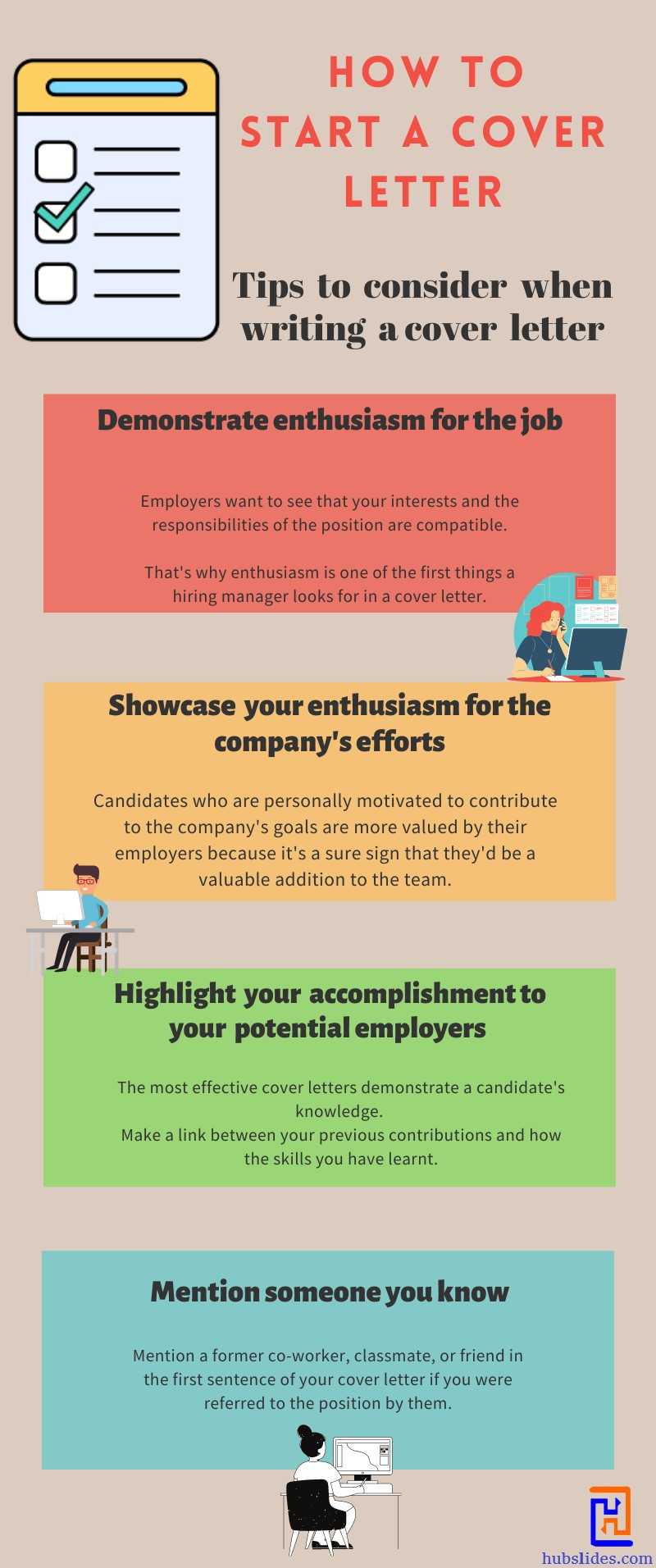Applying For A Job: How To Start A Cover Letter

Are you about to start applying for jobs and keeps wondering how to start a cover letter? A cover letter is a one-page letter that is attached to your job application.
When applying for jobs, a cover letter is a document that goes with your CV. It serves as a personal introduction and aids in the marketing of your application.
.jpg)
How to write a cover letter
A cover letter is required because it allows you to explain to an employer why you are the best candidate for the position. This is accomplished by emphasizing relevant skills and experience; as a result, you should always tailor your cover letter to the position you're applying for.
Unless the job advertisement specifically states otherwise, you should always include a cover letter. When writing a cover letter, you should include the following information:
- Introduce yourself and the position (or type of position) you're applying for (or looking for)
- Demonstrate that your qualifications and experience are equivalent to those required for the job.
- Finish with a call to action to encourage the reader to read your resume (for example, asking for an interview or a meeting).
Objectives of a Cover letter
A cover letter is a formal business letter that is frequently sent as the first point of contact with a potential employer. It serves as an introduction to you and your professional background.
You want it to be your best because it is usually the first impression you make on the employer.
.jpg)
Many employers will disregard a resume that does not include a cover letter. The cover letter serves as a marketing tool, informing the employer that you are interested in the position and the company and that you can contribute something worthwhile.
A well-written cover letter can be more effective than a resume in certain situations. As a result, complete your homework.
Before you write your letter, learn everything you can about the company and the position. This research will help you better connect your skills and qualifications to the company and position.
A good cover letter can be written by anyone who can write a grammatically correct letter. However, writing a cover letter that will persuade the employer to accept your resume as something special requires thought and planning.
What is the ideal length for a cover letter?
Keep it brief. Because a cover letter is supposed to be a summary of your resume, keep it to one page.
Essential tips when writing a cover letter
We've compiled some essential writing tips to help you learn how to open a cover letter in a way that stands out from the crowd and gets you an interview.

1. Demonstrate enthusiasm for the job
Employers appreciate candidates that are enthusiastic about their jobs. That's why enthusiasm is one of the first things a hiring manager looks for in a cover letter. They want to see that your interests and the responsibilities of the position are compatible.
It is believed that employees who are enthusiastic about their jobs are more likely to perform better, remain longer, and contribute more to the company in the long run.
Use the first paragraph of your cover letter to demonstrate your enthusiasm. Explain why you're interested in the job and how it fits into your long-term career plans.
2. Showcase your enthusiasm for the company's efforts
If you're genuinely enthusiastic about a company's brand, mission statement, or products, make sure to express your enthusiasm in your cover letter introduction.
Candidates who are personally motivated to contribute to the company's goals are more valued by their employers because it's a sure sign that they'd be a valuable addition to the team.
3. Highlight your accomplishment to your potential employers
The most effective cover letters demonstrate a candidate's knowledge. So, if you have experience in your field, begin your cover letter by mentioning a professional accomplishment that establishes you as an industry expert.
Make a link between your previous contributions and how the skills you learned there will help you achieve similar results in your next position.
You reassure employers that you're fully capable of performing the job by being open about your relevant accomplishments.
4. Mention someone you know
Mention a former coworker, classmate, or friend in the first sentence of your cover letter if you were referred to the position by them.
According to studies, networking fills over 85 percent of all jobs, making it the most effective way for anyone to find work.
.jpg)
Don't try to include everything in your CV. This gives the unwelcome impression that you're just repeating yourself. If one or two points from your CV are particularly relevant to the job you're applying for, it's best to highlight them.
Keep the cover letter straightforward. If you can say everything you want in a few words, one sentence is fine. Include a line break if you need to move on to the next paragraph. This eliminates any long text passages, making the letter easier to read.
Author Bio
The Editorial staff includes content researchers from various areas of knowledge. They add a plethora of expertise to the Hubslides Editorial team. They constantly and frequently oversee, produce and evaluate contents that are most ideal to aid impacting knowledge to readers.
Article Comments
No Comments!
At present there are zero comments on this article.
Why not be the first to make a comment?
Similar Articles
Sponsor
Search Articles
Experts Column
Latest Articles
Featured Articles
Most Popular Articles












